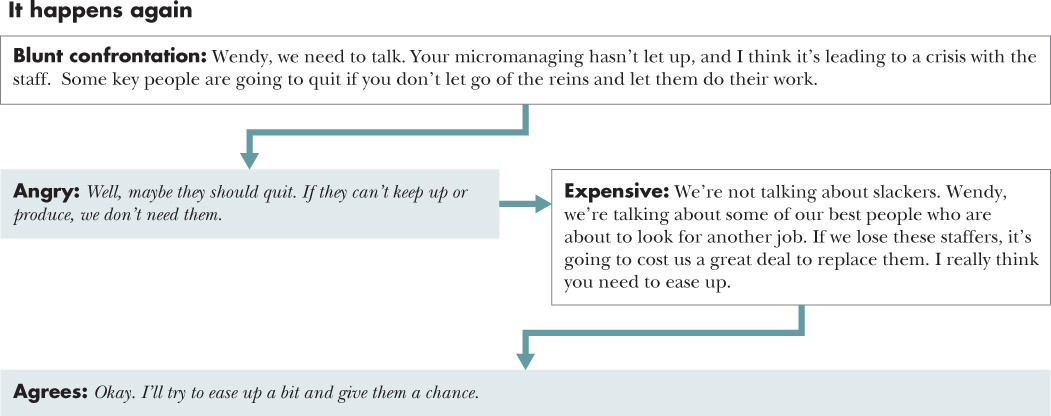23
Asking Your Supervisor to Stop Micromanaging
STRATEGY
A manager who can't or won't delegate will end up forcing out quality staff. Their micromanaging will end up a self‐fulfilling prophecy: the only staffers who stay will be those who aren't capable and who are happy to let someone else do their job. The best way to end such interference is to frame it as a personal, not business, problem. Question the manager's health, not their management style or effectiveness. If that doesn't work and the problem continues, you will need a blunter approach. Again, don't get into the issue of effectiveness. Instead, frame it as an economic issue: it will cost too much to replace those who quit. Having raised the issue twice, all you can then do is to keep your fingers crossed…or start looking for a new job yourself.
TACTICS
- Attitude: This concerns the health of the manager and the health of the company, so it's both a delicate matter and an important one. It's your responsibility, as a friend and as a loyal employee, to address it.
- Preparation: Make sure this is indeed an ongoing problem and that there are definite rumblings among the rest of the staff. A one‐time occurrence should just be shrugged off.
- Timing: Make your initial approach as soon as you learn that the micromanaging is causing a problem and make your second approach as soon as there is a recurrence of the behavior. Hold both dialogues in private in your supervisor's office.
- Behavior: Be friendly and personal. During the initial approach. If you need to have the conversation again, be more businesslike and formal.


ADAPTATIONS
This script can be modified to:
- Suggest that a friend or family member is being overprotective of a child.
KEY POINTS
- Frame this first as a personal health issue; one friend concerned with another.
- Hold the conversation in private in the other party's workspace.
- If staff is criticized, defend them gently without starting a debate.
- If your first approach is ineffective, frame it as an economic crisis, not as an effectiveness issue.
